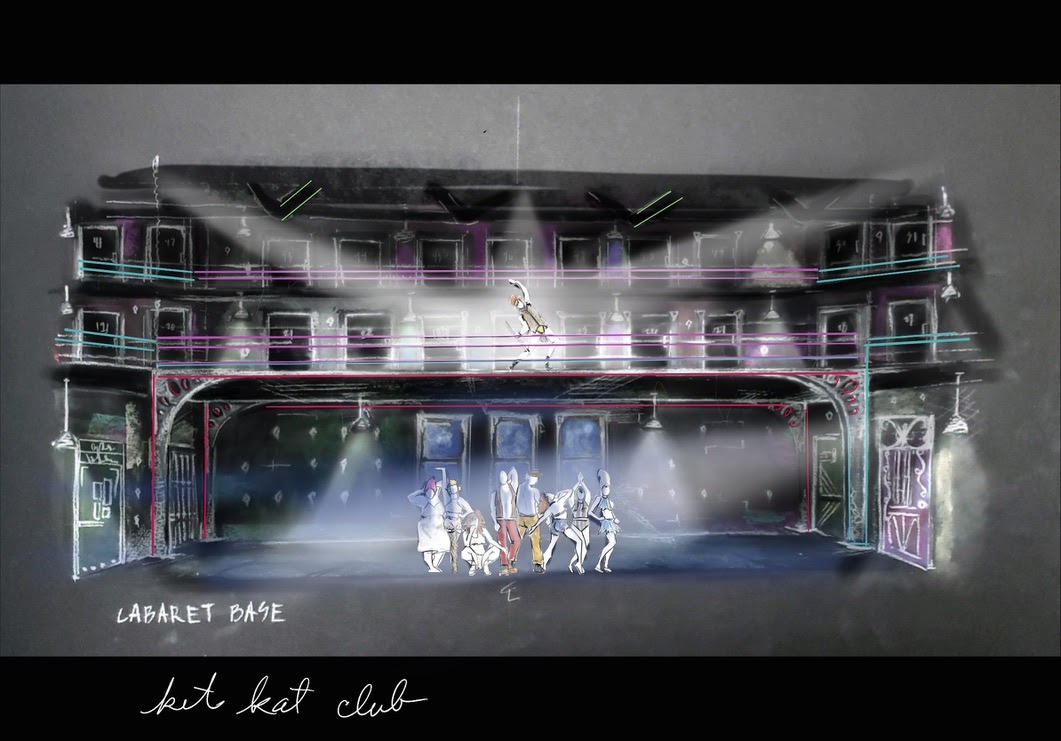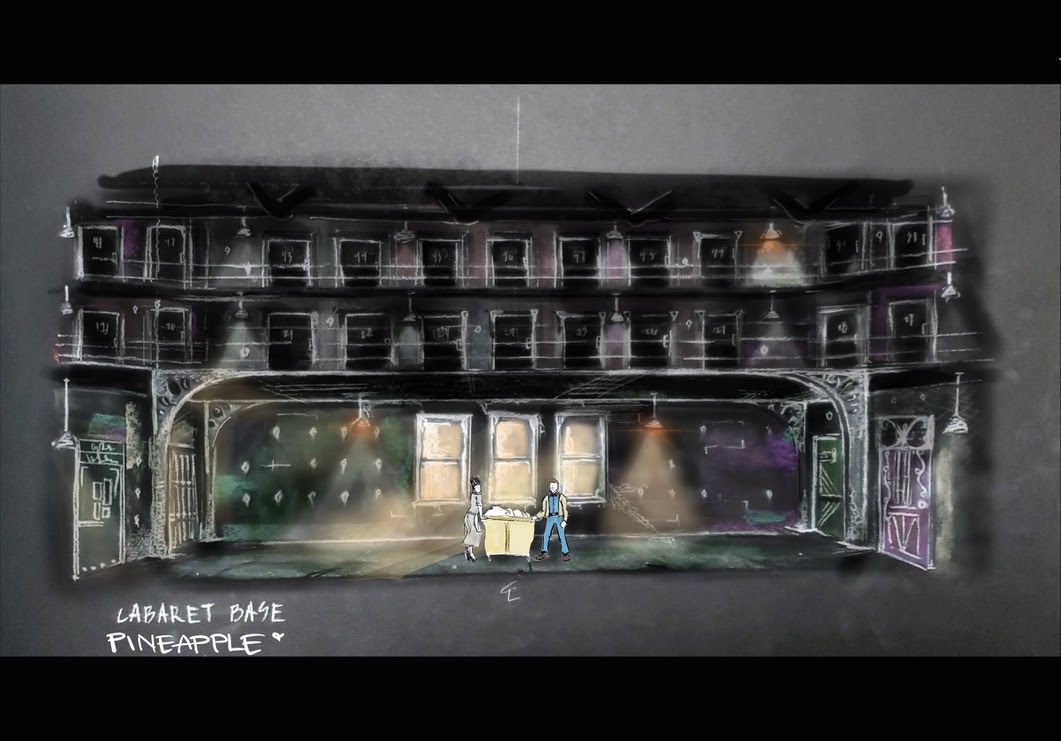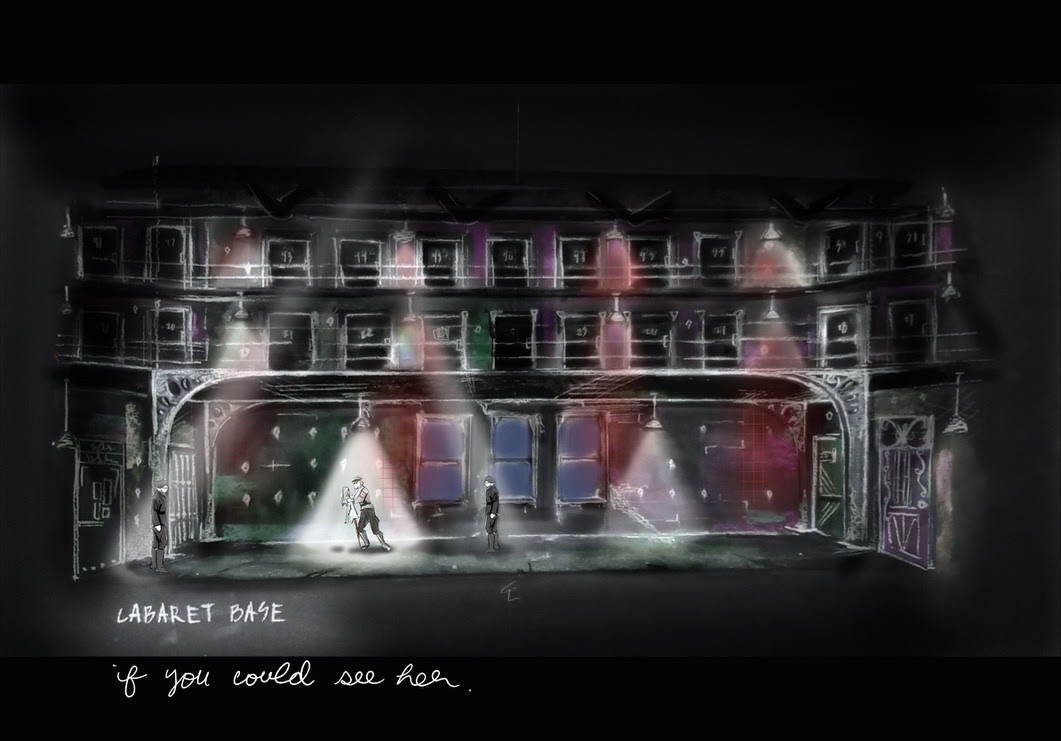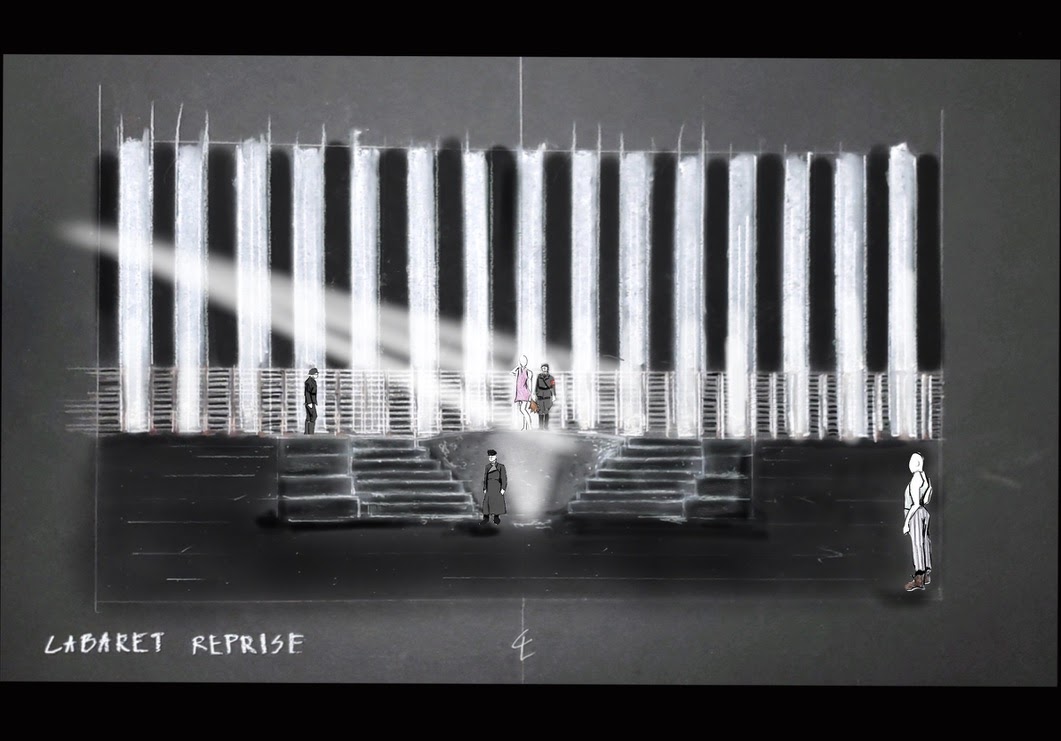The MFA in Scenic Design program is tailored for applicants looking to enrich their study of scenic design through dedicated research, script analysis, studio projects, and realised work both within the University setting and the industry.
A BFA in Design or Drama is in no way a prerequisite, and we encourage candidates from a variety of creative backgrounds to apply. We believe that good art is universal regardless of past medium and we consciously seek the benefit of a community that holds within it a diverse range of previous training and perspectives.
Within this three year program many of the traditional requirements of graduate school and the framework of academia have been eliminated. Our approach is not designed to put any given designer through a standard “academic track”, rather we work with the individual to craft an effective, rigorous, and unique three year “artist's residency” that will best serve the student within school and set them up for professional success after graduation.
This concentration includes practical training and course offerings in all traditional elements of design communication and collaboration such as digital and analog sketching, drafting, scene painting, and model work. These craft skills are seen as an essential baseline that allow designers to convey their work. In addition to these foundational skills, the majority emphasis is placed on analytical research and training as subjective artists. Work on theoretical projects is focused on, design (in multiple mediums), research, as well as script analysis and direction. These paper designs are the gateway to extensive production opportunities within the Department, Connecticut Repertory Theatre, the School of Fine Arts, and possibly at one of the region's many prestigious professional theatre venues.
The MFA Scenic Design department believes in active professional development, and strongly encourages current students to take full advantage of the opportunities to work and learn outside of the University with groups such as USITT, Prague Quadrennial, and Design Showcase East. In addition to job placements, and individual internships the Scenic Design department regularly engages in field study, including most recently: trips to Broadway, The Metropolitan Opera, Long Wharf Theatre, and Hudson Scenic Studios.




COURSE OF STUDY
A minimum of three years of full-term resident graduate study is required.
A minimum of 60 graduate credits is required.
All M.F.A. Scenic Design Candidates follow The UConn Graduate School's "Plan B" (no thesis), however we do include a 3rd year M.F.A Final Project in your third year of study.
The following is a selected list of plausible Dramatic Arts courses you could take in order to complete your MFA in Scenic Design:
All of the Following Courses:
- DRAM 5301 Scenic Design-Single Set Plays
- DRAM 5302 Scenic Design-Multi-Set Plays
- DRAM 5303 Scenic Design-Non-Proscenium Stages
- DRAM 5304 Scenic Design-Musical, Opera and Ballet
- DRAM 5305 Studies in Scene Design-3D Computer Modeling and Rendering
- DRAM 5201 Production Drafting
- DRAM 5312 Studies in Scenic Design: Perspective Drawing and the Pencil Sketch
- DRAM 5313 Studies in Scenic Design: Rendering with Watercolor
- DRAM 5314 Studies in Scenic Design: Model building Techniques
- DRAM 5212 Scenic Design-Rendering with Photoshop
- DRAM 5320 Scene Painting
- DRAM 5400 Advanced Costume Design Lecture
- DRAM 5510 Studies in Lighting Design
- DRAM 5603 Studies in Puppetry
- DRAM 5131 Studies in Theatre History
- DRAM 5130 Introduction to Graduate Studies in Stage Design
- DA 5375 Field Studies Internship
- DA 5392 Independent Study
- DA 5396 MFA Project
- DA 5397 Investigation of Special Topics in Scene Design
- DA 5477 Practicum in Scenic Design
- DA 5395 SEMINAR in Scenic Design
Electives from the Following List to Equal a Minumum of 60 Total Credits
- DRAM 308 Lighting Design (variety of topics)
- DRAM 313 Costume Design (variety of topics)
- DRAM 315 Studies in Costume Design: (various topics)
- DRAM 351 Puppetry Arts (variety of topics)
- DRAM 397 Investigation of Special Topics: History of Costume